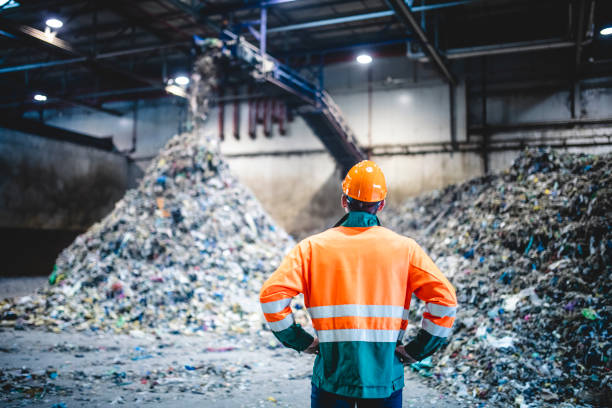The Importance of Waste Management in a Sustainable Future
Effective waste management is more critical than ever. With increasing populations and industrial activities, the volume of waste generated has surged, posing significant challenges to the environment and public health. This article delves into the various aspects of waste management, its importance, strategies, and the role individuals and communities play in fostering a sustainable future. For more detailed insights, you can Explore here.
The Scope of Waste Management
Waste management encompasses the collection, transportation, processing, recycling, and disposal of waste materials. It involves various types of waste, including:
- Municipal Solid Waste (MSW): Household waste, commercial waste, and similar types of waste.
- Hazardous Waste: Waste that poses substantial or potential threats to public health or the environment.
- Industrial Waste: Waste produced by industrial activities, including manufacturing, mining, and agriculture.
- Biomedical Waste: Waste generated from medical activities, including hospitals and clinics.
The Environmental Impact of Poor Waste Management
Improper waste management can have severe environmental consequences, such as:
- Pollution: Landfills and illegal dumping can lead to soil, water, and air pollution.
- Greenhouse Gas Emissions: Decomposing organic waste in landfills produces methane, a potent greenhouse gas.
- Ecosystem Damage: Toxic waste can harm wildlife and disrupt ecosystems.
- Resource Depletion: Failure to recycle and reuse materials leads to the unnecessary consumption of natural resources.
Strategies for Effective Waste Management
To mitigate the negative impacts of waste, various strategies can be implemented:
- Reduce: Minimizing waste generation through efficient resource use and sustainable consumption patterns.
- Reuse: Encouraging the repeated use of products and materials to extend their lifecycle.
- Recycle: Converting waste materials into new products to prevent resource depletion.
- Recover: Extracting useful materials or energy from waste.
- Dispose: Safely disposing of waste that cannot be reused or recycled, ensuring minimal environmental impact.
Technological Innovations in Waste Management
Recent advancements in technology have revolutionized waste management practices. Some notable innovations include:
- Smart Waste Bins: Equipped with sensors to monitor waste levels and optimize collection routes, reducing fuel consumption and emissions.
- Waste-to-Energy (WtE): Converting non-recyclable waste into usable energy, reducing landfill dependency.
- Advanced Recycling Techniques: Chemical recycling processes that break down plastics into their raw materials for reuse.
- Artificial Intelligence (AI): Using AI for waste sorting and identifying recyclable materials, improving efficiency.
The Role of Policy and Legislation
Governments play a crucial role in waste management through the enactment of policies and regulations. Key areas of focus include:
- Regulations: Establishing standards for waste handling, transportation, and disposal.
- Incentives: Providing financial incentives for recycling and waste reduction initiatives.
- Public Awareness Campaigns: Educating citizens about the importance of waste management and encouraging sustainable practices.
- Extended Producer Responsibility (EPR): Holding manufacturers accountable for the entire lifecycle of their products, including end-of-life disposal.
Community Involvement and Individual Responsibility
Effective waste management requires the active participation of communities and individuals. Key actions include:
- Segregating Waste: Properly separating recyclable and non-recyclable waste at the source.
- Participating in Local Programs: Engaging in community recycling and composting initiatives.
- Advocating for Change: Supporting policies and practices that promote sustainable waste management.
- Educating Others: Raising awareness about the environmental impact of waste and encouraging responsible behavior.
Case Studies of Successful Waste Management
- Sweden: Known for its efficient recycling system, Sweden recycles nearly 99% of its household waste. The country has also implemented Waste-to-Energy plants that supply electricity and heat to its residents.
- San Francisco: With a goal of achieving zero waste by 2020, San Francisco has implemented comprehensive recycling and composting programs, diverting 80% of its waste from landfills.
- Japan: Japan’s strict waste segregation and recycling policies have made it a global leader in waste management. The country recycles 77% of its plastic waste, one of the highest rates in the world.
The Future of Waste Management
As the world continues to grapple with the challenges of waste, several trends are shaping the future of waste management:
- Circular Economy: Emphasizing the reuse, repair, and recycling of products to create a closed-loop system, reducing waste and conserving resources.
- Zero Waste Goals: Cities and companies worldwide are setting ambitious targets to eliminate waste, encouraging innovation and sustainable practices.
- Public-Private Partnerships: Collaborations between governments, businesses, and communities to develop and implement effective waste management solutions.
- Global Cooperation: International efforts to address waste management challenges through shared knowledge, technology transfer, and policy alignment.
Conclusion
Effective waste management is essential for protecting the environment, conserving resources, and ensuring public health. By adopting sustainable practices, leveraging technological innovations, and fostering community involvement, we can create a more sustainable future.
